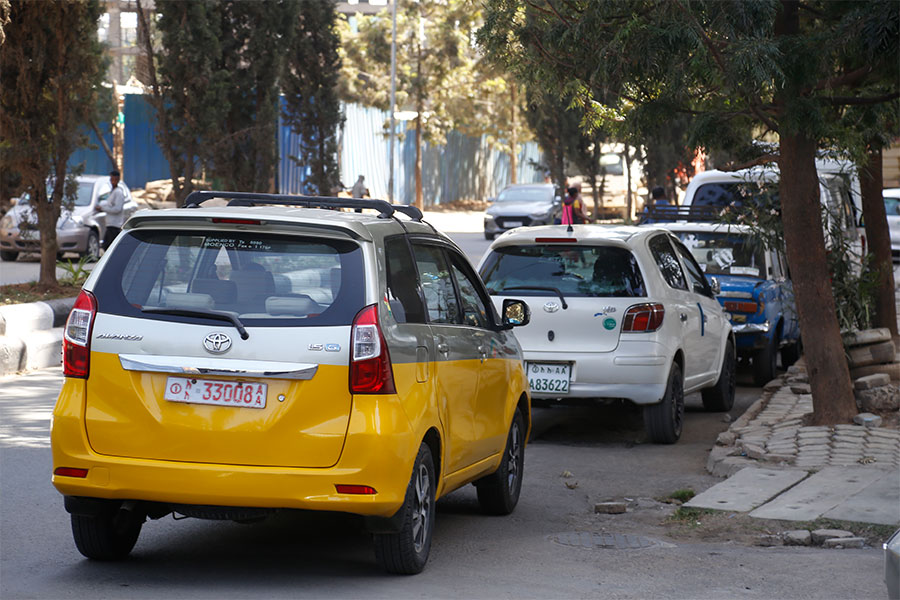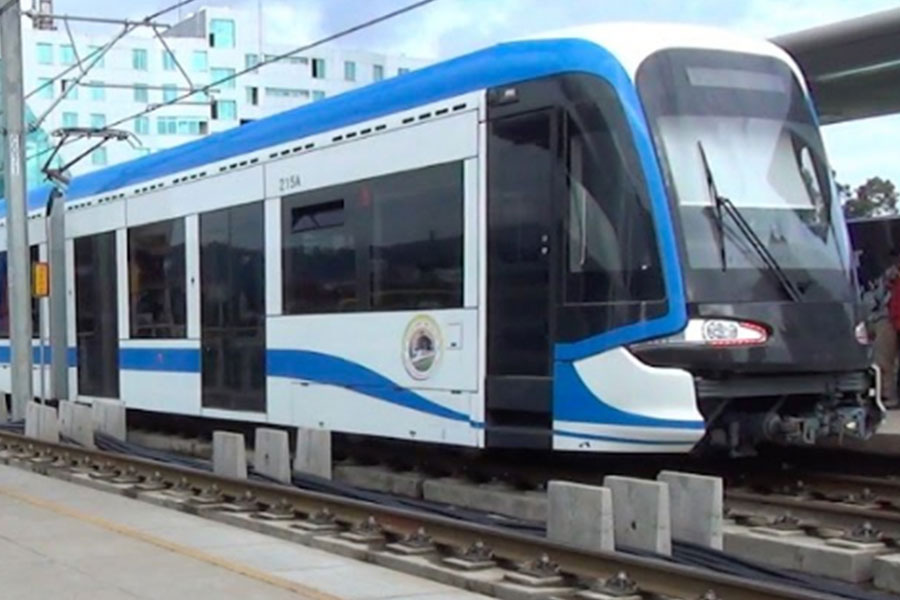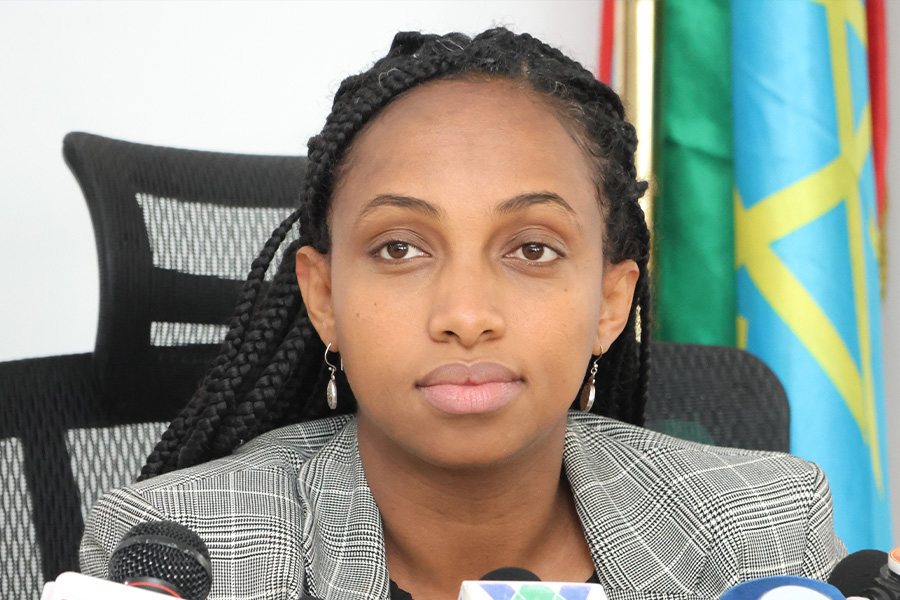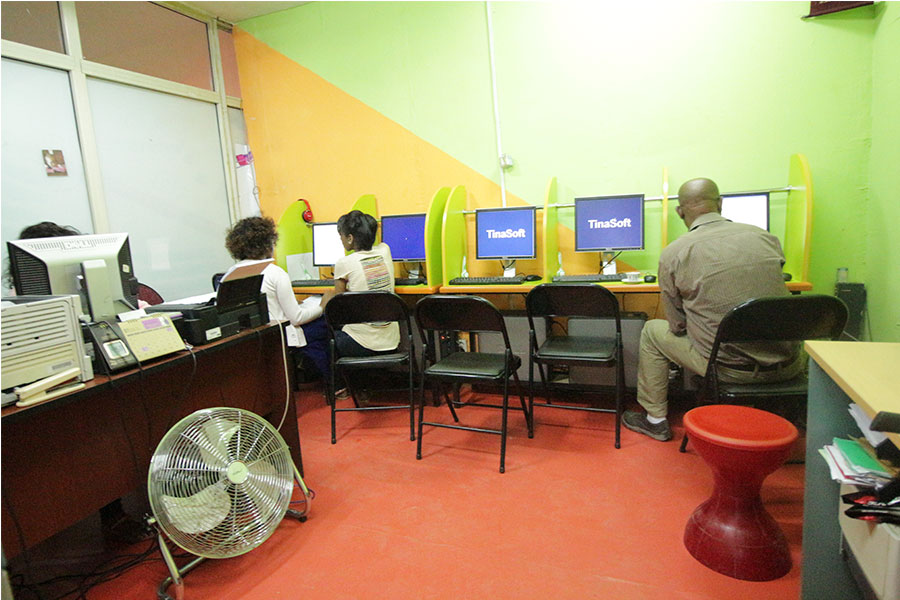
Featured | Mar 26,2022
An Abu Dhabi-based firm has agreed to supply half a million tonnes of urea to Ethiopia following months of negotiations between federal authorities and executives of FertiGlobe.
It was a delicate process for both sides. The authorities had contracted FertiGlobe six months ago to supply Ethiopia with a half million tonnes of fertiliser at 710 dollars a tonne. However, the company terminated its contract claiming rising prices in the global market that jumped to 1,000 dollars in the early weeks of this year.
At the heart of the impending crisis is a combination of ascending prices in the international market and a dwindling foreign currency reserve that is enough to cover less than two months of Ethiopia's import bills. Fertiliser is one of the essential and strategic commodities Ethiopia imports, what may come with the cost.
Now executives at the Ethiopian Agricultural Businesses Corporation, established in 2015 as the sole importer of fertilisers through a merger of five public enterprises, say they have reached a deal with FertiGlobe's executives for the delayed shipment. People close to the matter say the deal was secured following intense negotiations.
The first batch of 50,000tn is scheduled to arrive at ports in Djibouti in the coming week, according to Gashaw Aychelum, director of communications at the Corporation.
Next week, the cargo to arrive marks Ethiopia's first urea imports for the coming harvest season. Last November, the Corporation had reached an agreement with the Morocco-based OCP Group to supply 780,000 tonnes of NPS, another fertiliser type. Close to 491,000tn of this arrived in the country at the end of last week. But this covers 62pc of the NPS procured for the coming Mehir season. The Corporation has paid 650 dollars a tonne, more than double the 280 dollars average price last year.
The federal government has budgeted 1.6 billion dollars to procure 780,000tn of NPS and half a million tonnes of urea. The latest deal with FertiGlobe is expected to push the expenditure higher.
Last year, fertiliser imports cost the federal coffers 688 million dollars, accounting for nearly five percent of the country's total import bill. Foreign currency demand for fertiliser has grown by 24pc annually over the past decade. International market prices have been soaring since 2020, and the war in Ukraine has exacerbated the situation. However, Gashaw says this is not the only reason behind the price spike. According to him, countries such as India procured large amounts of fertiliser, creating global shortages.
Shipping costs have also increased dramatically. Last year, it cost an average of 31 dollars to transport a tonne of fertiliser to Ethiopia. It jumped to 80 dollars this year. The results are reflected in domestic retail prices. A quintal of NPS is on sale for up to 4,800 Br, nearly 200pc higher than farmers had paid last year.
The outlandish rise in fertiliser prices presents ordeals to the eight million smallholder farmers who used urea, NPS, and mixed fertiliser to boost productivity on 10.1 million hectares last harvest season. Only 40pc of smallholder farmers use chemical fertilisers.
Regional authorities have decided to sell the latest imports with the fertiliser carried over from the previous year, attempting to cut prices between 2,700 Br and 3,200 Br a quintal. The Oromia Regional State uses 270,000tn of fertilisers in stock to push prices down. It has received 150,000tn of fertilisers imported this year.
The aggregate is ready for sale to farmers in 24 zones through outlets operated by 31 unions, according to Mesfin Regasa, director of agricultural input supply at the Oromia Cooperative Agency.
There are 1,400 cooperative unions at the national level responsible for distributing fertilisers they receive from unions to central warehouses dotted across the country. However, fertilisers in stock combined with the recently imported volume are far from meeting the demand in Oromia Regional State, estimated at 840,000tn this year.
Comprising 115 cooperatives and 63,000 farmers, Lume Adama Farmers Cooperative Union distributes fertilisers at the adjusted prices. Farmers buy a quintal of fertiliser at 2,700 Br. The Union has received 2,200tn of the 25,500tn of fertiliser it had ordered, according to Kassiya Cheru, its general manager. The Union has a little over 1,200tn in stock from what it received last year.
Not all of the 31 unions in Oromia are selling at the adjusted price rates.
Yerer Farmers' Union comprises 119 cooperatives and 91,000 farmers in four weredas. According to Solomon Tolera, marketing team leader, it does not have fertiliser in stock from the previous season. Farmers in this village pay double their peers in Lume Adama.
Yerer Union has thus far received 1,300tn of fertiliser, though it had requested 40,000tn.
Around 300,000tn of fertiliser is available stock in the Amhara Regional State, disclosed Ajebe Sentayehu, deputy head of the regional agriculture bureau. An additional 140,000tn of freshly imported fertiliser has reached the region, although demand is estimated at over 800,000tn. A few unions in the regional state, which hold stock from the previous harvest season, sell for 2,700 Br a quintal.
This includes Merkeb Cooperative Union, which has close to 140 cooperatives in 11 weredas of the Gojjam Zone.
Tesfahun Bekele, 51, is one of the 355,000 farmers under Merkeb Union. A father of five, he farms teff on one hectare in West Gojjam Zone.
He bought a quintal of fertiliser for 2,715 Br last week, half the amount farmers in Yerer pay. However, Tesfahun is yet to decide whether to buy the input.
"Almost all farmers in the area have yet to buy fertiliser,” said Tesfahun. “The harvest season is approaching, but we're still sitting idle.”
This is a bad sign for the country, says Lemma Dagabassa, who lectures at Haromaya University's School of Plant Sciences.
“The Amhara region is the top producer of teff," he said. “If farmers there do not start harvesting on time, the whole country will be in trouble next year.”
Close to 2.7 million smallholder farmers in the Amhara Regional State harvested 2.1 million tonnes of teff on one million hectares last harvest season. The volume represents slightly less than 40pc of the 5.5 million tonnes of teff harvested nationwide. Lemma urged federal officials to supply fertiliser – NPS at the very least – on time for the farmers to begin planting their crops.
“Usually, NPS is applied right before planting, while the application of urea can wait for a month afterwards," he said.
PUBLISHED ON
[ VOL
, NO
]

Featured | Mar 26,2022

Fortune News | May 15,2021

Commentaries | Jul 15,2023

Fortune News | Nov 09,2024

Agenda |

Radar | Feb 05,2022

Radar | Nov 14,2020

Fortune News | Jun 15,2019

Viewpoints | Jul 10,2021

Radar | Aug 27,2022

Dec 22 , 2024 . By TIZITA SHEWAFERAW
Charged with transforming colossal state-owned enterprises into modern and competitiv...

Aug 18 , 2024 . By AKSAH ITALO
Although predictable Yonas Zerihun's job in the ride-hailing service is not immune to...

Jul 28 , 2024 . By TIZITA SHEWAFERAW
Unhabitual, perhaps too many, Samuel Gebreyohannes, 38, used to occasionally enjoy a couple of beers at breakfast. However, he recently swit...

Jul 13 , 2024 . By AKSAH ITALO
Investors who rely on tractors, trucks, and field vehicles for commuting, transporting commodities, and f...

Jul 5 , 2025
Six years ago, Ethiopia was the darling of international liberal commentators. A year...

Jun 28 , 2025
Meseret Damtie, the assertive auditor general, has never been shy about naming names...

Jun 21 , 2025
A well-worn adage says, “Budget is not destiny, but it is direction.” Examining t...

Jun 14 , 2025
Yet again, the Horn of Africa is bracing for trouble. A region already frayed by wars...